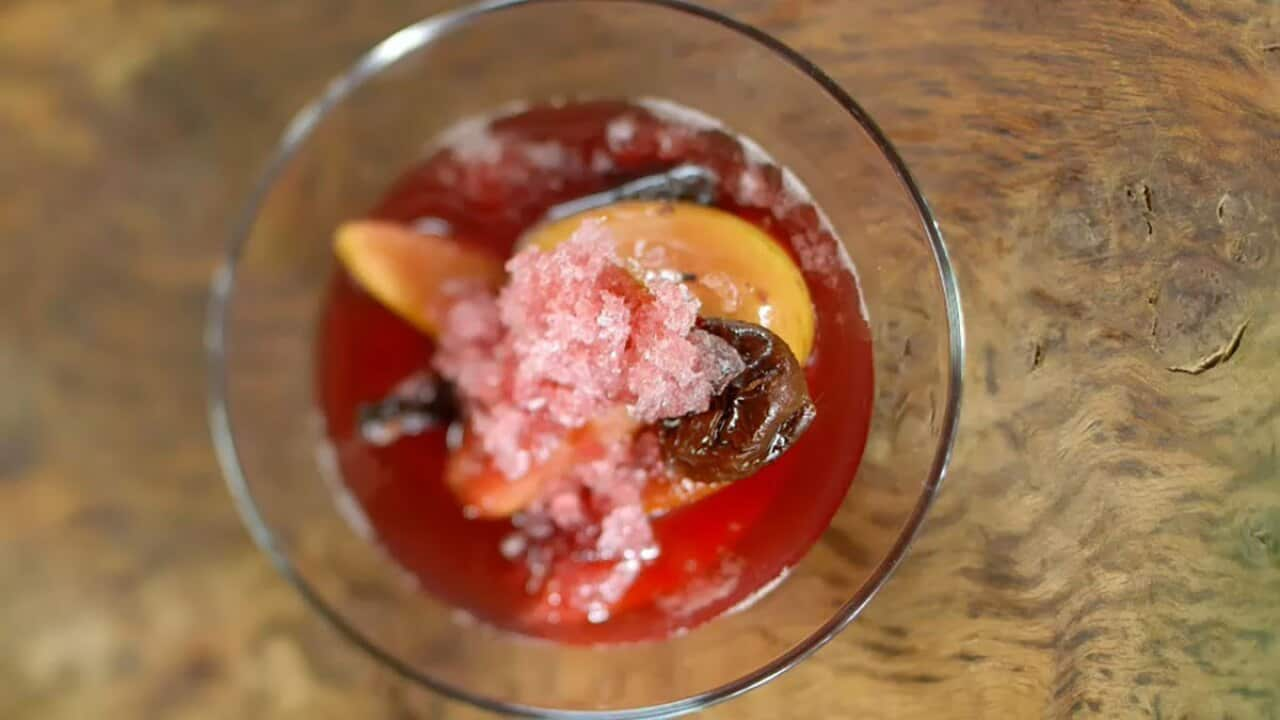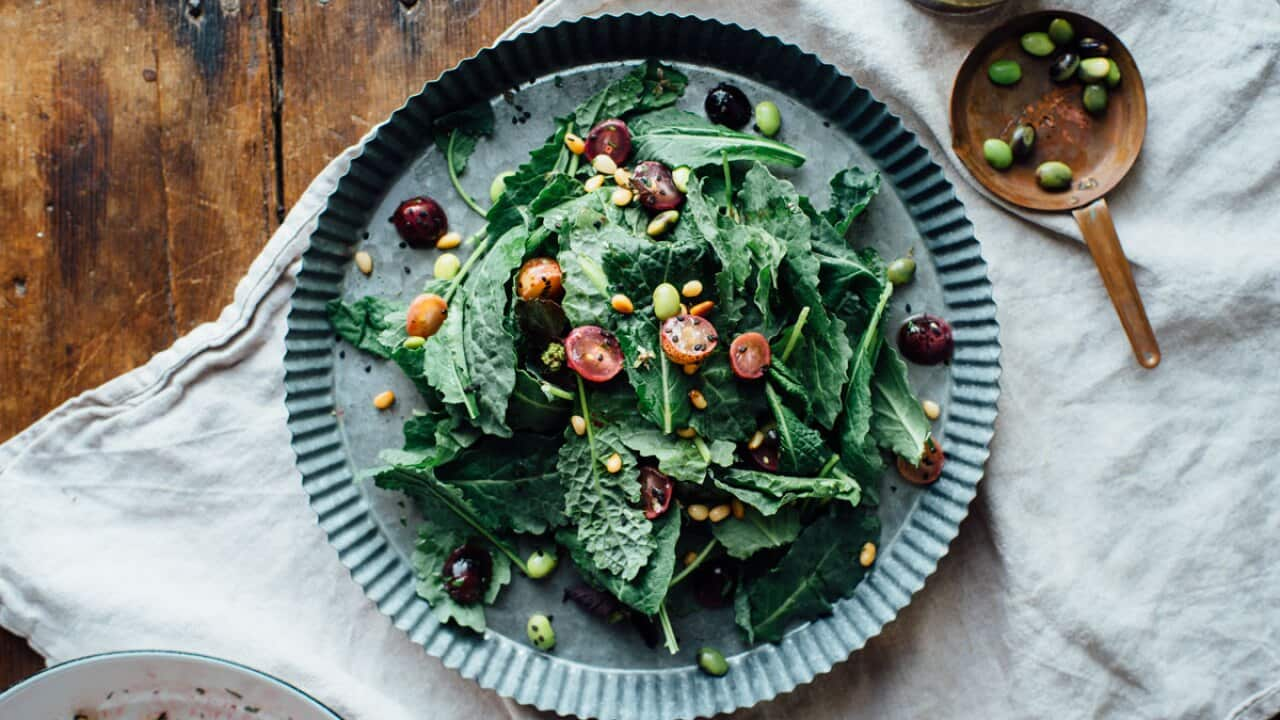Since the beginning of the COVID-19 crisis, pasta and rice have been flying off the shelves in Australian supermarkets. With the colder months approaching, it's also important to maintain your fruit and vegetable intake.
Chef and Queen Victoria Market ambassador says, "When you're shopping at a market, it's all fresh produce, which is the best thing. And you're getting the freshest version of those things so they'll last a bit longer in your fridge than from the supermarket."
KEEPING THOSE NUTRIENTS UP

50+ nourishing dinners you can make with pantry staples
In autumn, figs, pears, grapes, Brussels sprouts and sweet potatoes are at their prime. Come winter, look for broccoli, beetroots, carrots, lemons and apples.
Mother nature knows what she's doing; the reason why they're abundant is that they have the nutrients we need to be ingesting at this time of the year.
, a food educator helping kids fall in love with vegetables through , explains, "Brassicas or green leafy greens are abundant during wintertime. Mother Nature knows what she's doing; the reason why they're abundant is that they have the nutrients we need to be ingesting at this time of the year."
Martini agrees. She's a big fan of during winter, which keeps well in the fridge: "It's one of these versatile things that people overlook. A white drum cabbage or a sugarloaf cabbage or even wombok can be used for many different things."
While you could cook it, she recommends making or a with a simple dressing for maximum nutritional value.
THAT'S RIGHT

Did you know you can freeze avocado?
Now is the time to take advantage of autumn produce like pumpkins, tomatoes and figs. Zaslavsky says, "Vegetables that are abundant now won't be around pretty soon.
Mushrooms are at their peak during autumn and winter. According to Martini, "Dry roast mushroom in the oven and throw them in a mix of rice vinegar, tamari or light soy and a bit of sesame oil with a few slices of ginger. They can sit in the fridge like that for two weeks in the soy dressing. You can throw them in stir-fries, salads and sandwiches."
"I roasted a whole pumpkin the other day. I scooped out all the flesh, mixed it with chicken stock and finished it with some cream, salt and pepper. It was an easy pumpkin soup for my kids. You could add fresh dill, pumpkin seeds or stir chilli into it. You get better results for soups during the winter if you roast vegetables rather than boiling them," she adds.
Make sure to store your fresh fruit and vegetable properly so they keep longer.
Both Martini and Zaslavsky have no qualms about buying certain vegetables frozen, like peas, corn and spinach.
Zaslavsky says, "Usually, fresh is best, but because they're flash-frozen immediately after they're picked. You're better off buying frozen peas in winter than fresh peas. Not only are they more nutritious, sweeter and cheaper, they also last longer."
You can freeze excess produce, including herbs and chilli, as well as condiments like , curry paste and . Keep your vegetable offcuts in a container in the freezer, and you'll have enough to make at the end of each week.
Frozen fruits don't keep their texture as well, but they can be added to smoothies and baked goods.
Some canned veggies like tomatoes and artichokes can also come in handy.
Zaslavsky, who has a book about vegetables coming out this spring, says, "I always have jars or tins of whole peeled tomatoes which I like to squish into a sauce with my hands like a nonna."
LOOK AFTER YOURSELF

Fermenting is the food trend you need - for your gut's sake
are also a great way to consume vegetables during winter and give that extra oomph to your dishes. Make them yourself (check out and for inspiration), or simply buy a jar of kimchi or sauerkraut if you're short on time.
"When you're preserving, freezing and pickling, you need to make sure you've rinsed and washed the produce. Food spoils if there's residue on it. And don't try to preserve already blemished or old overripe stuff; it's better to eat that right away," says Martini.
If you're worried about having access to fresh produce in the coming months, you should know that even in countries in lockdown like Italy and Spain, markets and supermarkets are still trading. If people don't stockpile and only buy what they need, .
Love the story? Follow the author here: Instagram and Twitter . Lead image via .
As of Tuesday afternoon, only people who have recently travelled from overseas or have been in contact with a confirmed COVID-19 case and experienced symptoms within 14 days are advised to be tested. If you believe you may have contracted the virus, call your doctor, don’t visit, or contact the national Coronavirus Health Information Hotline on 1800 020 080. If you are struggling to breathe or experiencing a medical emergency, call 000.
SUSTAINABLE AUTUMN AND WINTER EATING

Eat well: Is fresh food always the best choice?











